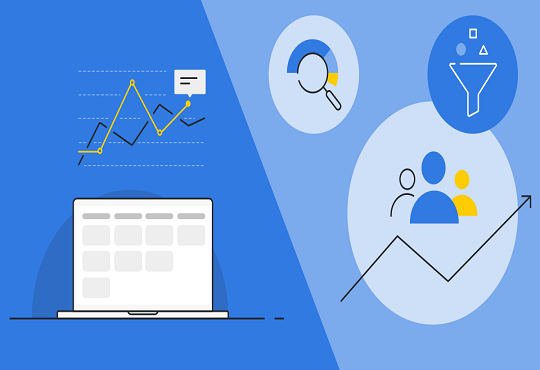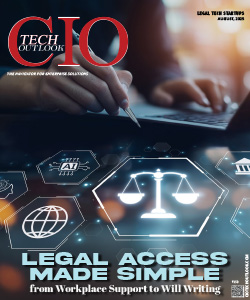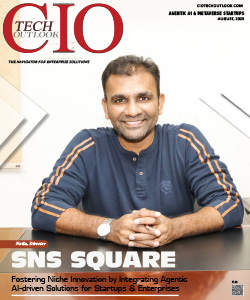Top 4 Trends to Shape the Future of ERP
Abhrasnata Das | Sunday, 12 June 2022, 07:20 IST

ERP is not what it used to be, declared Gartner in a 2019 report detailing the fourth era in the evolution of ERP. With time, the focus of ERP has shifted from enterprise-wide planning to a broader ecosystem that includes customers, suppliers, partners, competitors, and stakeholders. In fact, Gartner expects that by 2023, the majority of large ERP systems will have at least one fourth-era feature.
Since 2019, enterprises have also been under a lot of pressure to optimize their operations amid remote working conditions. Hence, it’s no surprise that they’re spending more than ever before, enabling IT efficiency. As the industry digs deep into automation, let's take a note on how the ERP solutions are developing and the latest trends driving the growth.
Bespoke Solution
Using generic ERP solutions across a variety of sectors, organizational profiles, and business demands no longer provides universal value. As a result, there will be a shift to hyper-niche ERP solutions that incorporate industry-specific knowledge and best practices, offer specialized features and functionalities relevant to specific industries, and enable seamless integration with cutting-edge technologies like IoT and advanced analytics.
At the same time, as CIOs assess ERP deployment options, there will be a major change away from the traditional one-size-fits-all strategy.
A two-tier ERP strategy enables large organizations operating across multiple locations and subsidiaries to integrate Tier 1 ERP solutions designed for conglomerates with Tier 2 ERP solutions designed for midsize and smaller businesses. The benefits of this strategy include the ability to address specific business needs and localized requirements more effectively, while achieving significant cost savings in implementation, maintenance, and upgrades, and enhanced user experiences across the ecosystem.
Mobile Connectivity
Mobility of ERP solutions will no longer be an option as the industry transitions to cloud-based operability. This will benefit the industry in a variety of ways, including providing staff with always-on remote access to real-time data and insights on all important activities, as well as allowing them to do back-end and front-end duties from their phones. This change to a mobile interface will promote agility and productivity by increasing cooperation across a distributed workforce.
At the same time, mobile ERP provides CISOs with a new security problem. CISOs will use digital-era security technologies like multi-factor identification to establish employee identity before allowing access to sensitive information, as well as VPNs to validate unfamiliar devices and Wi-Fi networks and secure ERP data in order to secure mobile ERP access to a remote workforce.
Intelligent ERP
Increased integration of new technologies like AI, machine learning, and the Internet of Things is changing ERP into smart ERP. ERP systems now come with zero-touch automation, interactive support, an intelligent adviser, and other features to help businesses streamline procedures and increase productivity. Intelligent ERP can improve operations, minimize lead times, and eliminate data input and processing mistakes. AI-based solutions may also leverage data created by the system to aid in better informed decision-making by detecting red flags before they cause a business disruption.
The extensive use of robotic process automation (RPA) to transform corporate operations has resulted from the addition of automation capabilities to software systems. Bots and automation technologies in ERP solutions accomplish repetitive operations (such as onboarding, data collecting, and so on) and free up employees to focus on value-added activities while improving corporate productivity. AI-based ERPs may help with not just fundamental tasks like credit analysis, digital marketing, targeted customer support, and product configuration suggestions, but also more involved tasks like production or scenario planning, offering strategic insights.
Hyper Automation and Faster Action
The efficiency, convenience, and speed with which a workforce can utilize the ERP system determines its ROI. While there are no silver bullets for ensuring this, hyper-automation gets close by assisting people in avoiding repetitive, tedious, or even complicated jobs. By automating complex procedures, hyper automation helps remove delays, errors, and inconsistencies commonly associated with ERP processes. It also speeds up digital resource onboarding, shortens the ERP deployment process, and uncovers new automation opportunities.
In the coming days, an increased reliance of the enterprises on hyper automation will be noted to provide agility and scalability, while also employing its cognitive capabilities to eliminate unstructured data inputs.
Moving Ahead
No doubt, ERP is the heart and soul of any organization. However, ERP being an expensive solution, constant modernization and upgradation has been a common challenge for the industry.
That being said, with the introduction of new innovations like cloud ERP and SaaS based software, in the future implementation, customization, and upgradation of ERP will be massively simplified and streamlined. Moreover, integration of advanced technologies with the ERP solutions will turn the ERP into a impeccable force driving the growth of future business.




.jpg)